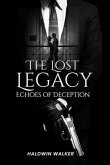Readers who enjoyed Youth in Revolt and Bridget Jones's Diary won't want to miss this tale of a pale-skinned foreigner navigating life in Japan.
How To Make Love to Foreigners is the diary of Randy Campbell, whose life, after moving to Japan, has taken him places he never expected. Fresh off the plane, he faces the challenges of learning Japanese, navigating the Tokyo train system, and compiling a list of women he's quick to bed, but terrified of committing to. With all this going on around him, Randy has to deal with threats from yakuza while filming a documentary, the racist comments of a girl who is in love with him, and feelings of helplessness when, on March 11, 2011, an earthquake strikes eastern Japan, unleashing a deadly tsunami that envelops a nearby coastline.
With a radioactive wind drifting towards Tokyo from the crippled Fukushima nuclear plant, Randy discovers the terror and absurdities that arise during a devastating catastrophe. Inviting us in on the feelings you go through when everything-your career, the place you live, perhaps... even your life-seems about to be wiped away forever.
From inside the book…
"These buildings were important to national security. There were FBI, secret service, and CIA offices in some of these buildings. They needed guarantees that if another bombing took place, no one could just walk in and peruse their files."
"Uh-huh, but if I was the owner, why would I destroy my own buildings?"
"These buildings were a terrorist target. They were the tallest buildings in New York. After the first bombing there were meetings about structural integrity, potential casualties, financial losses. But never in all these discussions did anyone imagine that somebody would try to fly a plane into these buildings. Or if they did, it would be something small, not a commercial airliner.
"You have to think about this not from our point of view, but from the perspective of 1994. They really believed that someone was, at some point, going to drive another truck into the basement. Finish what they'd tried to do in '93. This became a real panic after that Timothy McVeigh thing in Oklahoma City."
"Oh, yeah, that's right. That was '95."
"Yeah. The guy parked a fertilizer truck next to the building, and the whole thing came down. So the consensus at the time was that someone might try to blow up the buildings again. From the street level. Or the basement. Hell, even the subway was identified as a possible route. What no one wanted to talk about was that if you blew up the building from the basement, the entire structure might topple over. Like a domino. Anything in a thousand foot radius could be destroyed, including the other tower."
I took a sip of my drink. "That seems highly unlikely."
"I'm sure the engineers who designed Chernobyl said the same thing. Anyway, they came up with a plan that would prevent the building from toppling over."
"A controlled demolition."
"Exactly. A completely vertical collapse. So the building wouldn't kill as many people. I mean, nowadays there are residential apartments in that area."
I looked at Dewey. I was interested, but unconvinced. How many others bought into the same crazy theories?
Dieser Download kann aus rechtlichen Gründen nur mit Rechnungsadresse in A, B, CY, CZ, D, DK, EW, E, FIN, F, GR, H, IRL, I, LT, L, LR, M, NL, PL, P, R, S, SLO, SK ausgeliefert werden.









